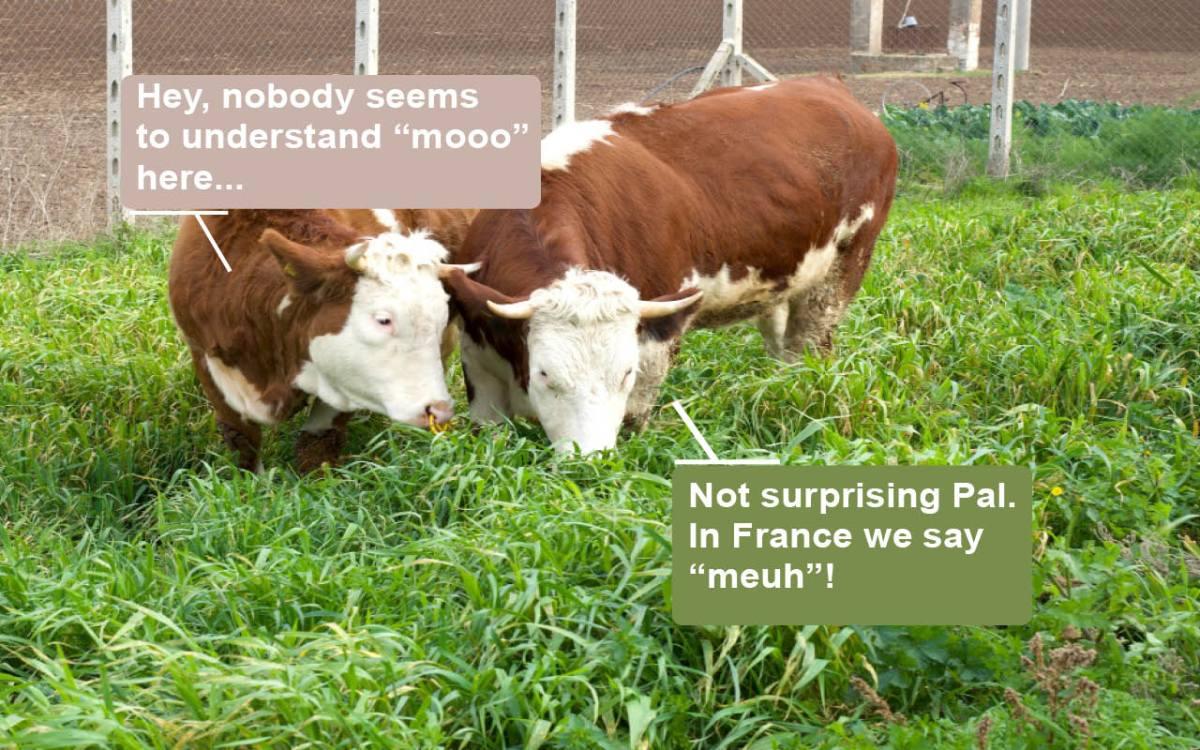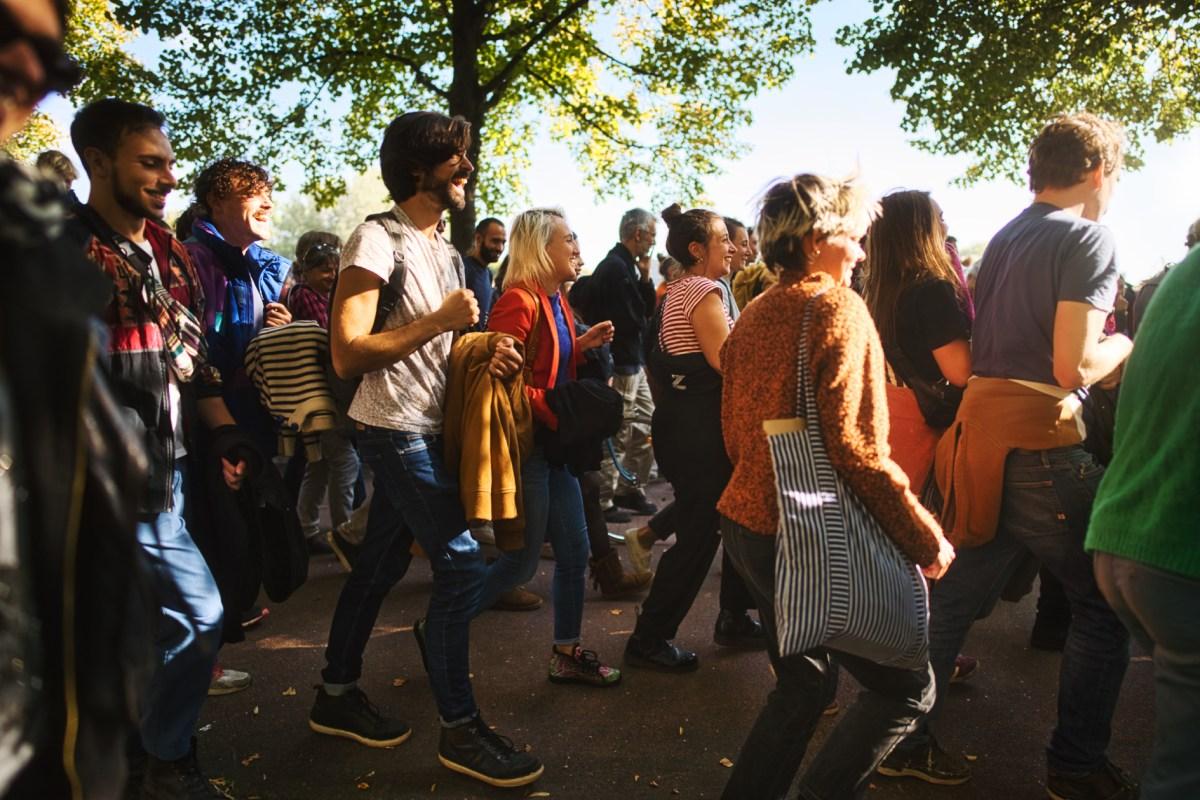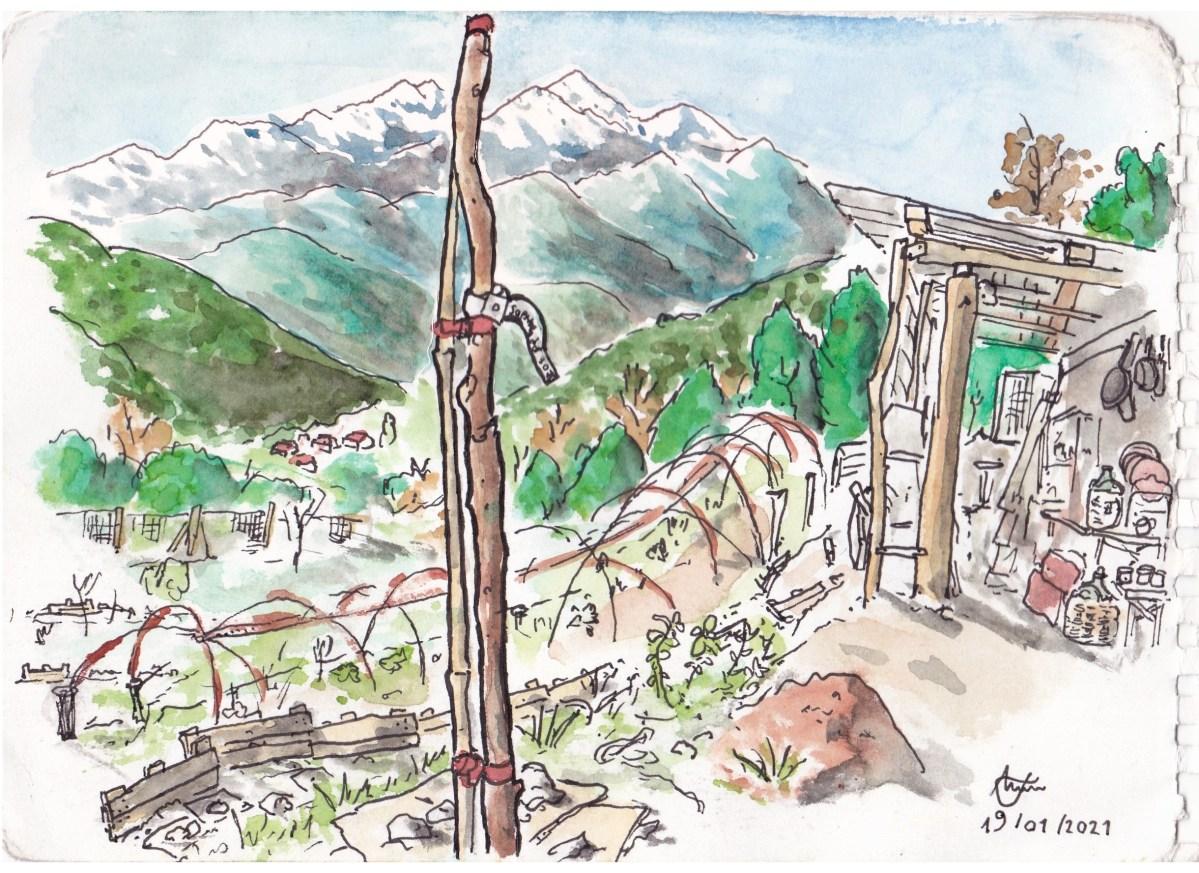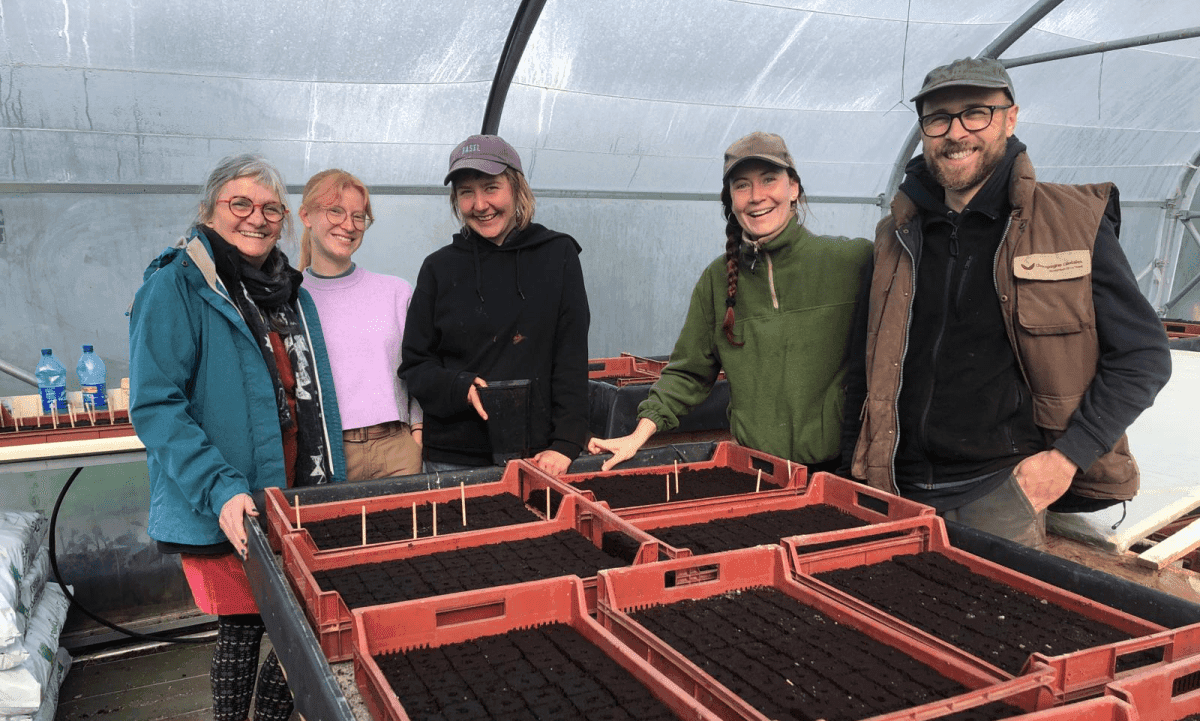
Learning the French Language through WWOOFing : Oh La La !
International WWOOFes share their experiences of coming to WWOOF on French farms in hopes of practicing and improving their French language skills. Inversely, hosts recount anecdotes of teaching their mother tongue to their international WWOOFers and the deeply human échanges that ensue.
Odette, gardener in Montélimar

To really start to see an improvement, WWOOFers preferably need to stay a month or two and to be really present during that time. Join all the activities and conversations. You wont improve your french by staying in your bedroom! I taught some English and I used to tell my students that the worst place to learn a language is in the classroom! Several WWOOFers have started learning French during their time here and a few are inspired to continue and even go-on to become proficient.
"WWOOFing is about full immersion, linguistically as well as culturally."
As for those WWOOFers who really improved their French…well, I'm remembering an American girl, Julie, who studied French in school. She came to stay for two months and after she went on to study French in University. Three years later she came back to visit. And then another! After these three stays, she was nearly fluent. This WWOOFer was always with me: cooking, hiking—totally present and aware of everything she could grasp and obtain. Her foreign language skills have now become so good that she coaches french athletes at a university in the US. Perfect professional French. Another young Turkish WWOOFer who knew little french when he came has gone on to work for the French Embassy in Istanbul, he got a grant to come study French in Amiens, and this year he got a job at the immigration services in Belgium thanks to his level of French.
"The most common vocabulary has to do with botany, the life of bees, the life of the garden, the life we share together…all these are very important. And food of course!"
One of Julie’s favorite French expressions learned here was On y va ! Let’s go! We were both so dynamic, always moving from one job to the next, that on y va ! was a key phrase. Another is vite fait, bien fait, quickly done, well done—very useful for work. When it comes to language differences, there is always the way of making one understand. It takes a little time...using your eyes, your smile, your hands; I even draw sometimes. There is never a complete blockage.
See Odette's profile here
Asker, Danish WWOOFer in South France

I wanted to study french in uni and I had two gap years to brush the dust off my french language skills. I went to a Danish travel agency to see about getting work in France and they recommended me doing WWOOFing. After working on the farm it would be a mental challenge sometimes to practice French but I would still make what effort I could. The family gave me a children’s book about the daily life that I would read every night before going to bed.. the words for plates, forks and things around the house. It actually helped! I also talked to the children; they were really bad at English which was to my benefit! I would point to something and they would say what it was in French. In free time, I would sometimes watch movies with the kids and they would put on subtitles in French.
"We have this stereotype in Denmark that French people are arrogant and they don’t want to talk to people who don’t speak their language. I found out that’s not the case at all."
My hosts were very social, they often had dinner parties and would invite friends over; even though I didn't know a lot of french, I would be like the fly on the wall and just listen to the French language and absorb and pick up worlds like le vin from working on the vineyard. or words for the tools like marteau for hammer when I was putting poles in the ground for the vines. My hosts also did speak English. Whenever I was confused and had a huge question mark on my face, they would switch to English so that I understood the work.
Sylvain, Vegetable Farmer in Sud Touraine

I’m very bad in English. So if the WWOOFers are working with me it can be a little more complicated—a minimum of French is necessary! However, we always have workers and interns on the farm who speak English; thanks to them, we welcome anglophones without a problem. From Korea, Australia, South America—all over. When words fail, gestures go a long way. Like pointing or miming. Which can be humorous! The WWOOFers not only learn French by speaking to me and my team, but also among each other—other WWOOFers that is. Just by working on a farm in France, they learn words for "vegetables", the "harvest", "weeding" and also words for living in community like, Est-ce que tu veux un café? T’as pris ta douche? or On va manger ! One thing is sure, a few drinks at apéro in the evening make it easier for us to exchange in any language!
See Sylvain's profile here
Julie, Farmer and agritourism in Gironde

We speak some English and Spanish. But we try to speak as little as possible with our foreign WWOOFers so that they get a more genuine french experience; so that they can really practice their French. We even have evenings where we put on music and karaoke in french. Everyone usually has a good laugh!
"Those who pay attention will start to pick up on expressions and turns of phrases typical to the region."
For example, we say “gavé” a lot. We put it with everything: c’est gavé bien, c’est gavé cool. It’s like "beaucoup" or "trop" in classic french that intensifies the noun or adjective. I.e. that’s too cool for c’est gavé cool). Je mange beaucoup becomes je mange gavé. At times when the language barrier is challenging, we explain slowly and we always encourage our WWOOFers to ask questions or communicate what they don’t understand. We’re pretty numerous here—4 farmers and then we take on a few WWOOFers at a time so it makes for a dynamic and convivial environment for our foreign WWOOFers to learn French in.
Visit the profile of La Ferme des filles
Westley, WWOOFed in a garden at Hérault

"I was going through a gardening phase. Also, I love France and wanted to improve the French that I had learned in school; that brought me to WWOOFing in France. The farm was in the South, about an hour outside Montpellier. There was a big garden we tended to plus animals.
"Other international WWOOFers were there as well. We all had the same goal of practicing French."
Like when we biked to the city on our day off, we made challenges to speak French the whole day. We talked to locals passing by. To cashiers in stores. Back on the farm, our host spoke some English so it might be half french, half English with him, but the gardener however, he spoke no English. At times there were barriers; he would speak fast or mumble the words for plants like "haricots" and we didn't know what that meant at the time. We would guess what he was saying and he would correct us but hey, that's how we learned. You start to catch onto the phrases.
"Coucou was a funny word I would hear all the time and they later told me it's a friendly and intimate but also light, fun way to greet someone."
There are two expressions I would like to share, the first being "le pain complet" for the bread we used to pick up at the boulangerie and eat cheeses and stuff with. The second being, "n'importe quoi !" which my hosts taught me can be used so many contexts, in so many ways. Oh, and "coucou"! From the text book, you learn "bonjour" but you never learn how to say hello in a more friendly and less formal way. Coucou was a funny word I would hear all the time and they later told me it's a friendly and intimate but also light, fun way to greet someone. WWOOFing creates an environment where you hear and use French on a daily basis, whereas in my french classes in Hong Kong it's once a week. The basics like "bonjour, ca-va?" start to catch on without you having to really think or recall anymore. Like this, the process in the classroom seems slow, but living and working with natives enriches your ability to learn."
WWOOFing in France vocab
Here we've included a top ten list of words and phrases to get you started before working on an organic farm in France. En-profitez !
- Le potager - vegetable garden
- Laisse-moi te donner un coup de main ! - Let me give you a helping hand!
- Désherber - to weed
- Est-ce que tu veux un café ? - would you like a coffee?
- Biologique (bio) - organic
- Ah, la vache ! - holy cow! / wow!
- La terre - dirt, ground, earth
- La poulailler - the hen house
- Prendre l'apéro - to take an aperitif
- Se coucher avec les poules - to go to bed very early (literally: to go to bed with the the chickens)
Lire davantage
Une fois par saison, l'actualité du WWOOFing par email


